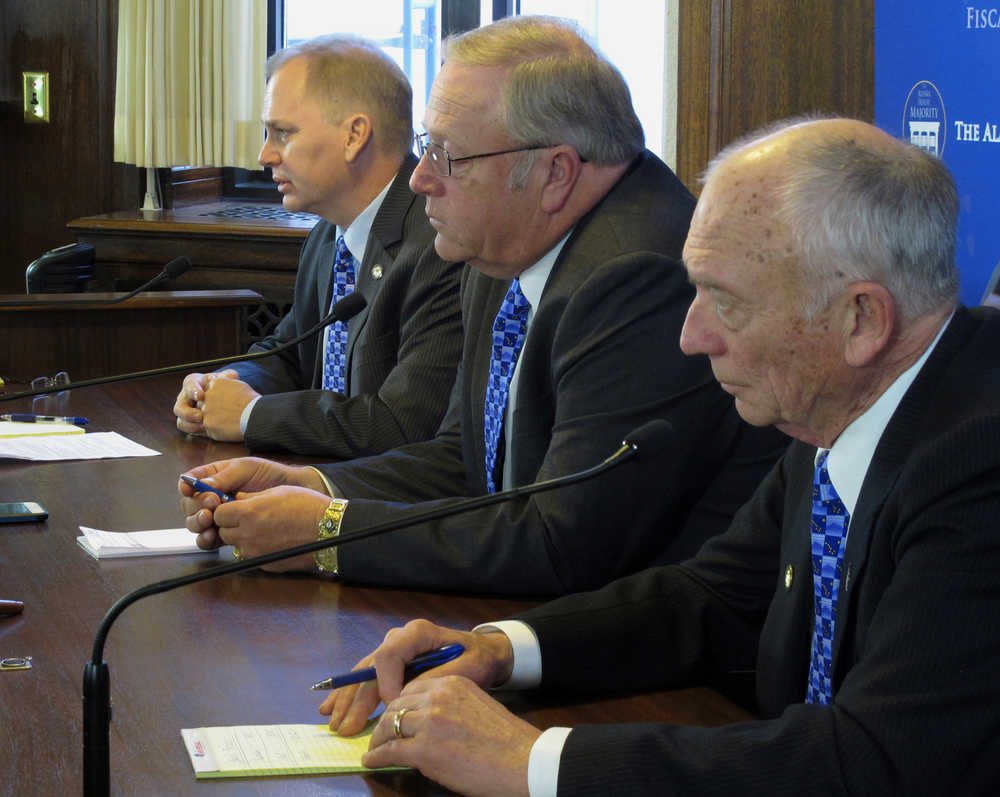JUNEAU, Alaska — Gov. Bill Walker’s administration began making its case for why the state should buy out one of its partners in a proposed liquefied natural gas project as legislators opened a special session on the issue Saturday.
A decision on whether to buyout TransCanada Corp. and approve buyout-related costs is all that remains on the agenda after Walker announced Friday that he was pulling the other agenda item — a gas reserves tax — after receiving written assurances from two of the state’s producer-partners, BP and ConocoPhillips, that they would be willing to make gas available to a gas project if they are not participating. Terms still must be finalized.
Walker said he hoped the remaining producer partner, Exxon Mobil Corp., would make a similar commitment.
Saturday began with an overview briefing by the administration and consultants on gas project-related issues, with the administration arguing that a buyout of TransCanada would give the state a greater say in the project.
The House Finance Committee held its first hearing on the proposal Saturday afternoon.
As a candidate last year, Walker was critical of the process under which the state was pursuing the project with BP, Exxon Mobil, ConocoPhillips, TransCanada and the Alaska Gasline Development Corp.
Under the arrangement, TransCanada would hold the state’s interest in the pipeline and gas treatment plant. The state can exercise an option by year’s end to buy a portion of that interest, but Walker wants a full buyout, in which case the state would reimburse the company for its development costs, plus 7.1 percent interest.
Walker’s bill seeks about $158 million in buyout- and project-related costs, including $13.6 million for state agency work on the project.
While a buyout could mean higher investment costs for the state of $7 billion to $8 billion, Alaska could get to up to $400 million more a year in cash flows during operation based on an expectation that the state could finance cheaper than TransCanada, legislators, aides and others were told during the overview by Deepa Poduval, with consultant Black and Veatch, which is working with the administration.
During legislative debate surrounding the pipeline project in 2014, TransCanada’s involvement was cast as a way for the state to not have to bear as much in upfront costs. It also gave the state and TransCanada a way out of a prior, failed gas line arrangement without a messy fight.
Senate Minority Leader Berta Gardner, D-Anchorage, said TransCanada effectively is acting as a banker under the arrangement. In fiscal terms, she said she doesn’t see a downside at this point to buying their position out.
Republican legislative leaders said they need to better understand the implications of any buy out and the assumptions used by the administration.
The Legislature has its own consultants that will help review the administration’s proposal.
Senate Finance Committee co-chair Anna MacKinnon, R-Eagle River, said the Legislature has to look at such things as whether this would advance a pipeline and how the state will pay for its share of the financial obligation.
House Speaker Mike Chenault, R-Nikiski, said the Legislature needs to make sure the decision made is sound for business, “because if it’s not, it puts Alaska in more jeopardy than what we currently are in.”
Alaska is grappling with multibillion-dollar deficits amid low oil prices.
The long hoped-for gas line is seen as key to Alaska’s future fiscal fortunes.

